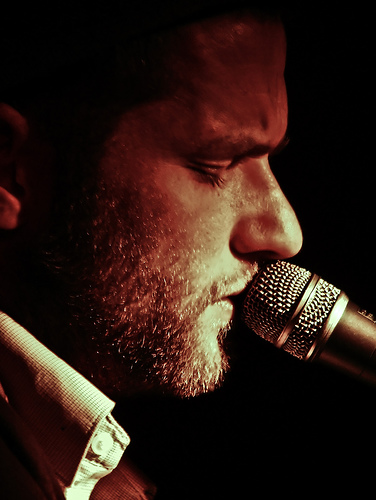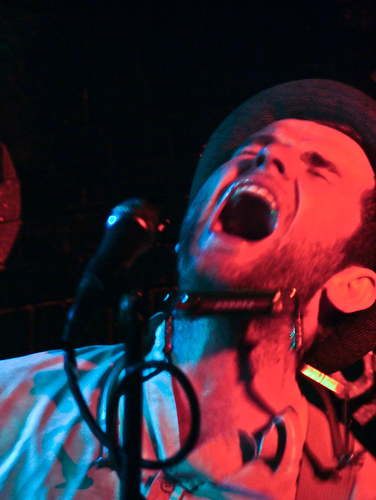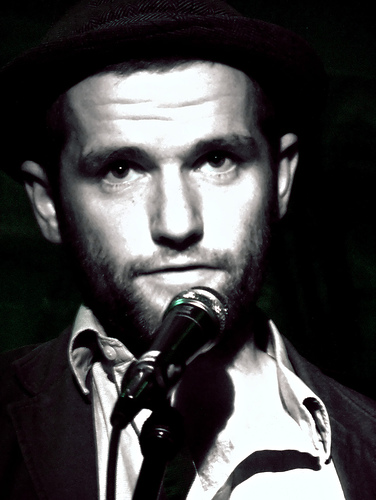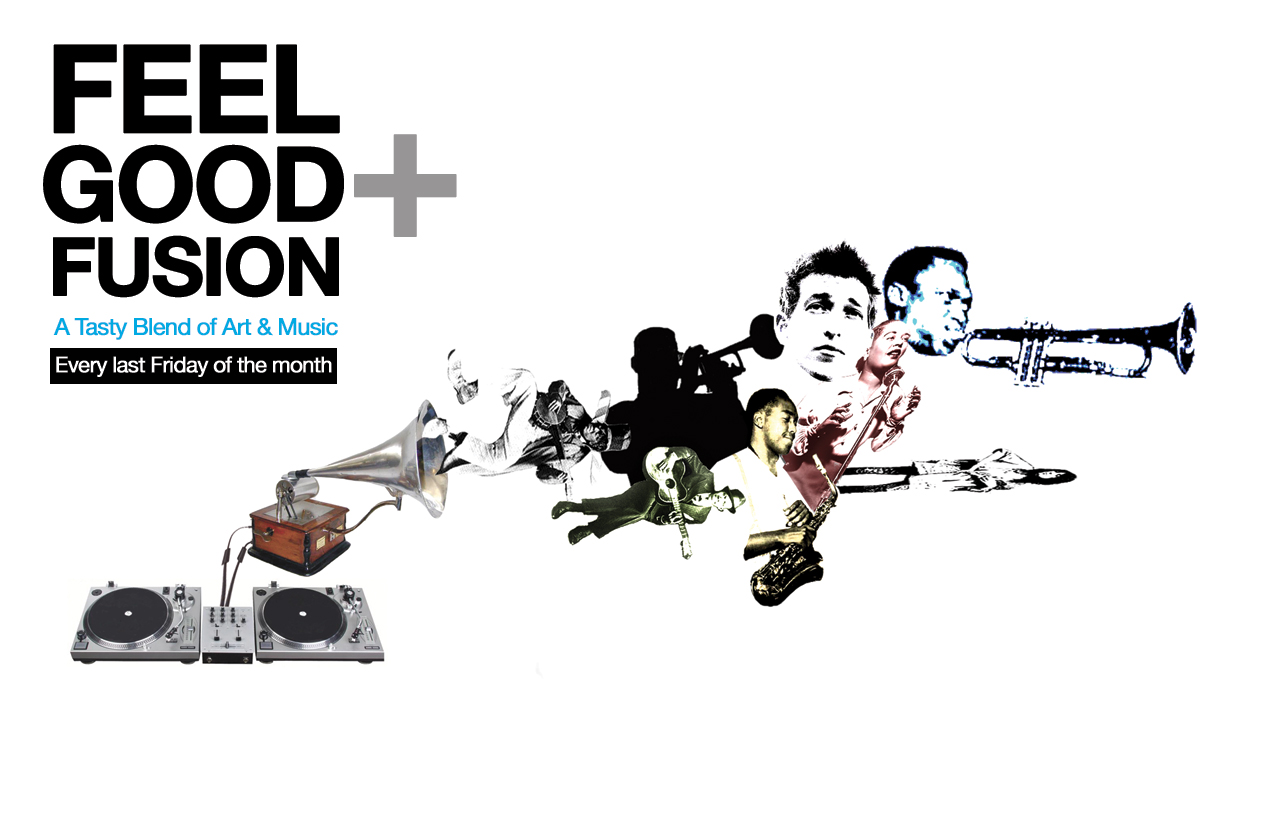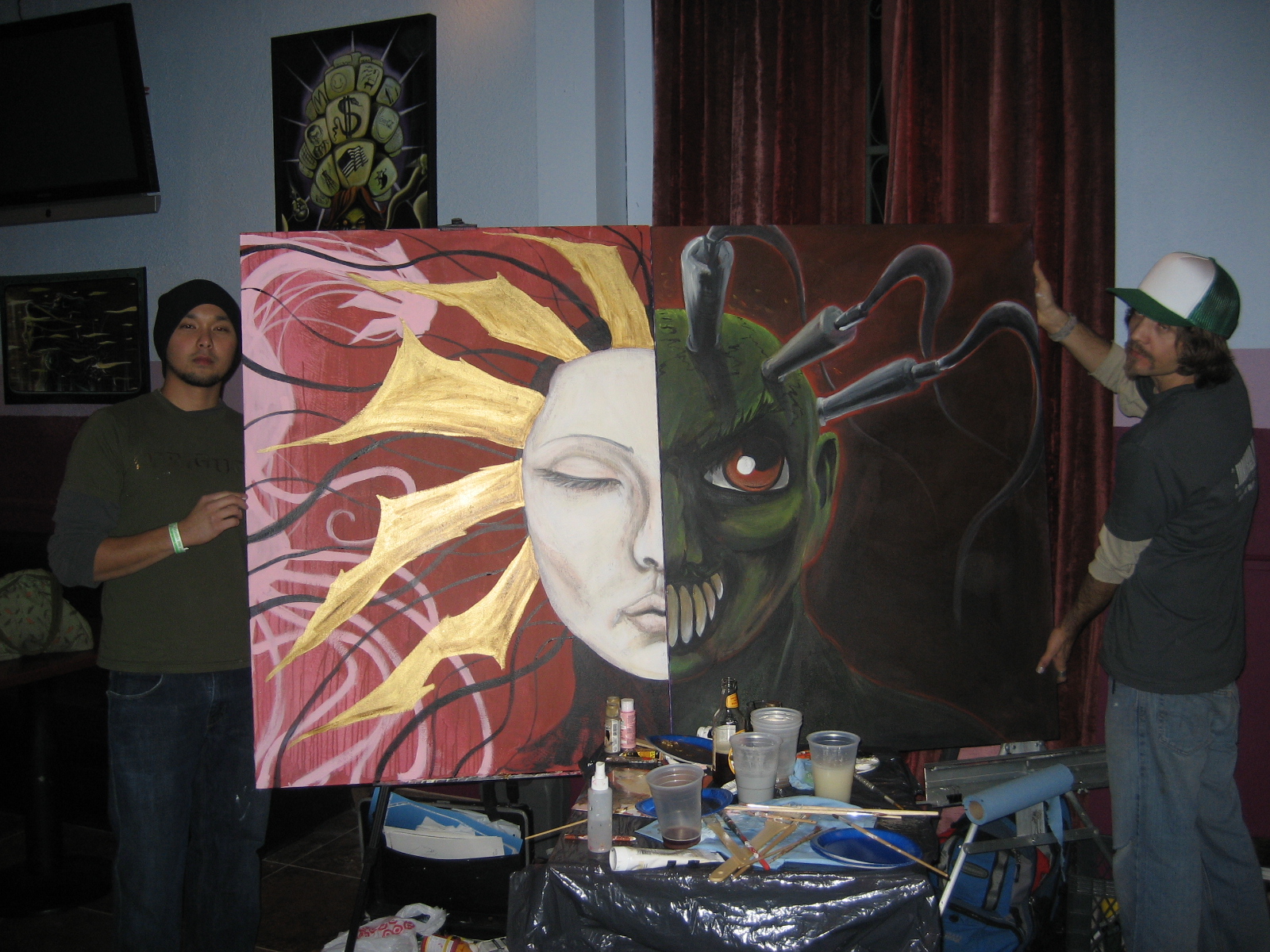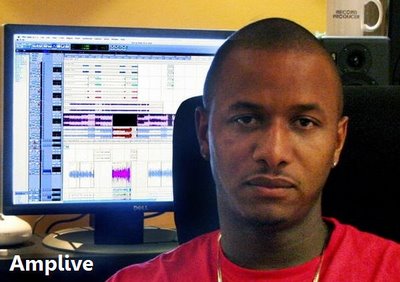After mentioning David Ford in a previous post, the anti-record-label record label (or “new breed of artist development company”), Original Signal Recordings was kind enough to contact us and offer an interview with David.
What was supposed to be a 20 minute chat turned into an hour long discussion filled with witty observations about how fucked up the music business has become as well as insights into David’s determination to be a musician and not a product, to preserve the art in artistry, and the challenges he sees in the collaborative, remixing culture that is emerging in online music. Due to the lengthy nature of the interview (ask me how long it took to transcribe!), I’ve included just my favorite highlights in this post. For a full transcript of the interview, email me.
Sandra: How would you describe your music to someone who has never heard it?
David: I would go to great lengths not to describe it. One of the reasons that I make music is so that I don’t have to describe it. It is what it is. And I’m very happy for people to draw their own conclusions based on its strengths or weaknesses. Describing music is really difficult, especially for me because I’m bound to get it wrong. The things that I think are present in my music, what I think it sounds like, is probably entirely different to other people. I think that’s your job not my job to describe it!
S: Are there any genres or categories you prefer not to be associated with?
D: Um, ya pretty much all of them I think. Genres are kind of weird. For me, music is just… it is what it is. Anything that can be overly genre-specified is normally the kind of thing that I don’t like very much. When people say, you know, this is Nu Metal or something… If something sounds so perfectly narrowly pigeonholed into its category then that probably means its more of an attempt at a good marketing pitch than an attempt at a good piece of creative art. Music is something that exists for its own benefit and of its own beauty. If things have to be a member of a club to be acknowledged, then maybe the reasoning for their existence is a little off key.
That said, singer-songwriter is a phrase that I’m not crazy about… obviously I am a singer and a songwriter, but then so is Bono and so is Bon Jovi. It’s kind of assumed that if you’re a solo musician you are a singer-songwriter and then with that comes the assumption that you’re going to strum quietly on acoustic guitar and sing soft little songs about a girl that broke your heart… I turn up at shows at with a lot of gear and I want to make lots of noise and scream and shout and throw things and people, you know, people have got a stool there and one microphone and then just go “Oh, I thought you would just play the guitar and sing.’ That happens to me quite a lot. And all that comes from how solo artist means singer-songwriter, which means one acoustic guitar and one microphone and it means you’re going to be very sedate and not be up in people’s faces…
S: How do you view the traditional big label artist management we’ll-do-it-all-for-you path vs. the newer Do-It-Yourself, promote yourself on YouTube and Myspace, I-don’t-need-a-label approach that many independent artists are pursuing these days?
D: I think the new without-a-label approach has more come out of the fact that labels are doing a bad job. As I said previously, I think the idea has shifted away from labels thinking that they have any kind of creative job or even responsibility to bring great, amazing exciting music to the people. It certainly seems like in years gone by there was a lot more respect or emphasis placed on artists and artistry than there is now. It seems like an artist is a luxury that is too expensive to have these days because they’re unpredictable. If you allow an artist to make their own record, they might end up making a bad record that doesn’t sell and you’ve spent loads of money on something you’ll never see back again.
An example I always like to think of is the Bruce Springsteen model, whereby he makes two relatively commercially unsuccessful records, the likes of which (these days) would get him dropped like a stone after his first record, let alone his second. Instead he gets to make a third record and he makes Born to Run and it becomes enormous and now Bruce Springsteen is the boss and he’s internationally enormous and a fantastically hugely successful high-selling artist who’s made millions for his label!
But, of course, if he were to have the same deal happen these days he wouldn’t get to make a second album and he’d never have the body of work that he’s come up with because the music business is all about how they need everything instantly now and longevity is just too risky a business. They need to have sure fire guaranteed things that are gonna work now so therefore you need stuff that’s going to be on TV or stuff that already has some kind of celebrity attachment to it.
And so quality of music, or quality of artistry, is – although it’s unspoken – I think it’s considered unnecessary. For every person who turns out to be Springsteen, there will be someone else who turns out not to be. So you don’t take a chance on anyone, no matter how much you believe that they might come up with something amazing. Instead you’d rather get a team of tried and tested writers to write something for a faceless replaceable pop nobody who’ll do exactly what they’re told and can be dropped like a stone with very little hassle resulting from it.
I think that’s the reason people have gone down the independent road… not because they feel a spirit of independence but because that’s the only way they can survive because the music business is not interested in music.
S: So it seems to me like we’re being ushered into a whole new era of artist-fan interaction where artists can communicate directly with their fans and fans can influence their favorite artists and get involved in the music-making process. Do see this happening? How would you feel about fans remixing your music? What do you think about what Radiohead has been doing with their song Nude?
D: I wouldn’t object to doing it, but for me things like that would be a novelty. It would be like a marketing drive. It’s a cute little story. There is a chance you might end up with something interesting. But for me, the whole point of being a musician or trying to be an artist is you want to present things to people and saying “This is what I want you to hear”. Not like “Here’s a suggestion. You change it how you want to”.
That’s the point that it becomes a product. Because, with product, you want to give the consumer exactly what they want because The Consumer is King. Whereas, for me, when it comes to art the artist should be presenting their artistic vision. And that’s nonnegotiable. You know, you wouldn’t – and maybe I’m being a little too lofty here – but you wouldn’t say to Leonardo Da Vinci, “Can you put a bigger grin on the Mona Lisa cause she looks a bit grumpy?” You wouldn’t do that because that’s what it is – it’s a finished article.
And I know I’m being way too precious about this but I kind of think we’ve reached a stage where our artists, our great creative entities, are being devalued I think. Because they’re too accessible. We’re too close to them.
And as a result you end up with people who aren’t that good any more. Which is why people go crazy for the person who wins American Idol, when in actual fact, they’re just a regular probably uninteresting, not particularly creative gifted person who’s got a decent singing voice. And that’s all the well.
But, in the past you’d have particularly gifted singers like, I dunno, Whitney Houston or somebody, who would actually come through the proper channels and they would have a career based on their talent rather than the fact that they were famous already for being on a TV show. I think all people are getting from this modern accessibility and all that is that they’re being encouraged to see artists as no different from themselves. Which is fine when they are no different than themselves.
For me, Bob Dylan is some scary otherworldly alien. Some kind of genius… I don’t want to hang out with him! I don’t want to get to know him. I don’t want him to be some guy I can go and have a chat with after the show. I want him to play the show and I want to never see him because I want him to be untouchable and perfect. And I don’t want to remix his song and then send it to him digitally and then maybe have him tell me it’s great. I want to have him make his record the way that he thinks is perfect and then I want to listen to it and react to his work. Who the fuck am I to think I can take something that someone has done and make it better? It’s insulting to the artist and I think it’s very arrogant of the individual to assume that.
So, you know, I’m cool for the fan remix thing. But… it’s not part of the creative process. It’s part of a marketing process. And it might be fun. And it probably is fun. But I don’t think it’s anything to be taken seriously.
S: In a review of your gig at the Gateshead Sage last January on Record Overplayed, Dawn (the editor) writes that your songs “alternate between tear jerking piano poetry and impossibly infectious, impassioned rants.” What are your impassioned rants about? Where do you find the inspiration for your lyrics?
D: Maybe I’ve let off a couple of impassioned rants during this interview…
My rants are about things I feel strongly about. The way that things are headed in music… When it comes to music, the word “artist” now means just anyone who’s singing on a record as opposed to having any level of artistic creative involvement or input into the record. I think the record business is fucked beyond repair. Certainly in Britain it is. I think America has still got some hope. I think it still works in this country, so much better than it does back home.
Britain being such a small country, it’s been very easy to monopolize and so now there’s a stage in Britain where there are like 3 or 4 people who have to give you a green light and if they give you the green light, you’ve got a career and you can continue, and if you don’t get a green light that’s it and you will never ever make it. I think just generally, if you watch the news on TV and you hear some of the nonsense that people talk about. The people who run our country… I don’t believe for a second they have our best interests in mind.
It’s kind of easy to look at the state of things and just think maybe just maybe we are completely screwed! And the whole world’s gone mental. And I can’t see a way out of any of this because the people who drive us as a people and as a society have fundamentally put us on a collision course. So, for me, ranting is… almost like a letting off of steam. And I feel bad for not offering any kind of solution, because I don’t have one.
I think that this point in history is a very very strange time. Optimism seems to have kind of subsided into a kind of resignation that yes, this is all going to happen. And yes, the earth and the environment will be screwed over. Yes, we will get involved with wars for reasons that they won’t tell us about at the time. It seems that people are kind of accepting of all this… and that we’re just gonna watch watch the decline and see what happens. There’s a lot to rant about.
But at the same time, it’s a beautiful world, and it’s a wonderful life and there is so much to think is truly wonderful. But, you know, at the same time, the things that our societies and our structures and our governments are doing are not necessarily helping to increase the overall joy in the world. That feels like a shame because I can’t believe it would be that difficult for everyone to get along and for everything to be cool.
S: Our blog is called Evolving Music. When you hear that phrase, what does it mean to you?
D: Evolving Music… um, I’m not really sure. I think, obviously, the whole concept of evolution is about a constantly moving thing. My worry with evolution is the whole Darwinism thing. Darwin was a very clever man who… used to live in my hometown strangely enough.
But, the whole survival of the fittest thing, which Hitler among others drew upon, and which I think is absolutely fundamental to the very concept of capitalism… it kind of means survival of the fittest but it also means survival of anyone who’s willing to fuck over someone else for their own benefit.
Obviously music is not as cutthroat a business as that. But… I kind of worry, because music is supposed to be an art form. And an art form is often based upon things like vulnerability. Evolution exists partly to eradicate vulnerability and leave you with only the strong and the robust.
My fear when it comes to music and evolution is that what you end up with is survival of the fittest, and the fittest is that which is most likely to survive in a competitive marketplace. And that which is most likely to survive in a competitive marketplace is that which is inoffensive to the highest number of people. And that which is inoffensive to the highest number of people is that which says absolutely nothing.
So, I’m not down on the concept of evolving music. I think evolution is a good thing. But, I worry that the music business is all business and no music. Or that music is the last item that gets filled in.
I think it’s very important that we keep an eye on it and make sure that the weak are still helped and that it’s not just about survival of the strongest because the strongest are fine. It’s the vulnerable, soft, beautiful little things that need protecting. In the spirit of evolving music, we need to look after the pandas and the hummingbirds that can’t necessarily look after themselves.
S: MixMatchMusic and the readers of Evolving Music thank you for your time! Best of luck!
